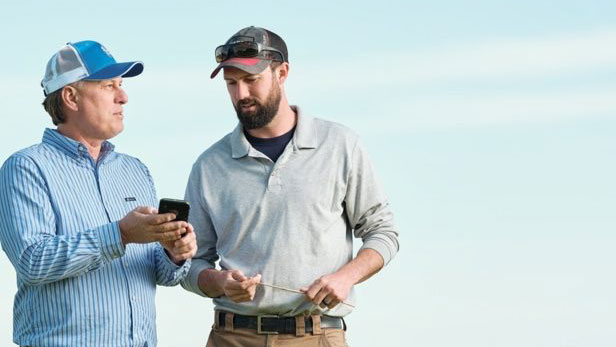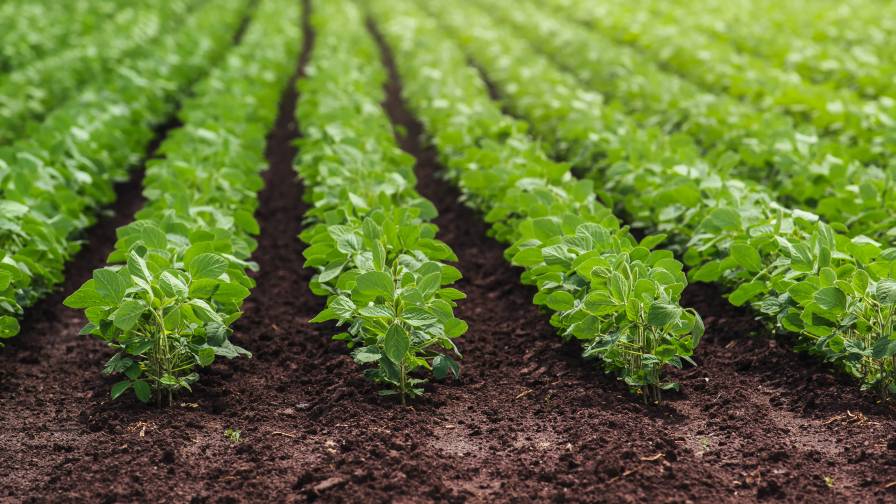Indigo Acquires Soil Metrics, Reaffirms Commitment to Carbon Program
Indigo Agriculture, a company leveraging nature and technology to unlock economic and environmental progress in agriculture, today announced a deepened commitment to advancing discovery in soil carbon science, enabled by the acquisition of Soil Metrics — a leading technology for comprehensive soil carbon and greenhouse gas (ghg) assessment in agricultural soils. The strategic investment reaffirms Indigo’s commitment to the rigorous scientific process underlying soil environment measurement and will further enhance and scale the premier carbon measurement, reporting, and verification (MRV) system powering its carbon farming program to maximize profitability and sustainability benefits for growers.
The companies have already been working together to meet the high scientific standards set by the registry-approved soil carbon methodologies in use by the Carbon by Indigo program. Indigo’s digital and technological capabilities, along with its diverse network of ag partners, will help scale and enhance Soil Metrics’ biogeochemical modeling. In turn, Soil Metrics will be able to leverage Indigo’s resources to improve and expand upon its soil carbon modeling capabilities while continuing to deliver services to its existing and future customer base.
“Soil Metrics is world class at modeling all the essential elements we think of when we consider what it would look like for agriculture to achieve meaningful environmental outcomes and deliver new value to farmers. We share a rich heritage of scientific excellence and industry collaboration and look forward to continued development of solutions that meet the highest benchmarks for quality while maintaining the choice and flexibility necessary to support every farmer, on every field,” said Chris Harbourt, Global Head of Carbon at Indigo.
Founded in 2019 by Professor Keith Paustian and colleagues at Colorado State University (CSU), Soil Metrics leverages over two decades of peer-reviewed research on agricultural ecosystems to provide industry-leading soil environmental modeling services at commercial scale. Soil Metrics equips private industry stakeholders with university-developed tools like the Daily Century (or DayCent) model that have for years helped public organizations such as the USDA and United Nations generate actionable insights about the environmental mechanics of agricultural lands. By expanding access of CSU’s trusted biogeochemical models to private industry stakeholders, Soil Metrics translates beneficial on-farm practices into financial instruments, like traceable sustainability premiums and verified ecosystem credits, for rewarding and promoting farmers’ participation in climate-smart opportunities.
For example, Soil Metrics recently partnered with Post Holdings, Inc. through its innovation accelerator to bring Airly Oat Clouds snack crackers to market. Airly helps remove greenhouse gas with every box sold by using carbon farmed oats, in addition to offsetting emissions from its production processes. “Soil Metrics provides the data and analysis tools that allow Airly to show consumers we can draw down greenhouse gas through our food choices,” said Mark Izzo, Co-Founder and President of Airly Foods. “We’re excited to see Indigo and Soil Metrics partner to expand agriculture modeling as a climate solution.”
Together, Indigo and Soil Metrics will:
- Further understanding of soil carbon and its potential as a climate solution – including opportunities to optimize carbon farming practices to maximize a range of beneficial outcomes and efforts to better map the dynamics of carbon persistence in soils — with a $1 million contribution to advance public understanding and development of soil carbon solutions (additional details to come).
- Provide improved modeling services to a greater range of third parties to address a broader set of industry sustainability opportunities including maximizing agricultural lands role as a carbon sink, decreasing nitrous oxide and methane outputs in farming, and maximizing financial value for farmers through the optimized production of registry-issued agricultural carbon credits or low carbon commodities.
- Foster ongoing discovery within the scientific community by expanding existing focus on collaboration with global scientific institutions, under the guidance of Dr. Paustian, who also joins Indigo as a scientific advisor.
“Our most promising path forward for large-scale adoption of carbon farming and other sustainability practices is through collaboration and collective action from all stakeholders – scientists, farmers, agriculture associations, government bodies, industry participants, and consumers,” said Dr. Paustian. “These values have been at the forefront of both Soil Metrics’ and Indigo’s work and will continue to carry forward the development of scalable, affordable, and scientifically rigorous solutions that advance a climate-smart vision for how we feed and fuel the world.”
By joining Indigo as an advisor, Dr. Paustian will inform the growth and direction of the company’s scientific research and development efforts to help farmers and leading global brands meet the urgency and demand for climate-smart agricultural insights and solutions.
Scientific rigor underpins Indigo’s farmer-first offer design, including the development of the industry’s first scalable, high-quality, and registry-approved carbon farming program. The company’s investment in Soil Metrics is the latest example of collaboration with the scientific community to advance progress toward a more beneficial agriculture system. Indigo has established research partnerships and grants with leading research institutions, including North Carolina State University, the USDA Agricultural Research Service, and the Woodwell Climate Research Center, among others. In collaboration with farmers across the United States, Indigo researchers are also now in their third year of the Soil Carbon Experiment, a long-term soil study that includes a combination of observational and interventional field-scale research sites that span 12 states and over 130 fields. Today, Indigo continues to deploy a systems-approach to realize a vision of a beneficial agriculture system, one that is more connected and empowered for the benefit of people and the planet.
“Like Soil Metrics, Indigo Ag has proudly collaborated with stakeholders across the agricultural ecosystem to accelerate adoption of beneficial farming practices with a comprehensive suite of tech forward, science-based solutions. Getting carbon right is essential, and will set a standard for opportunities ahead,” said Brad Justice, CEO of Soil Metrics. “We’re looking forward to exploring the full potential of our joint pursuit to improve and establish best-in-class, industry-standard tools and benchmarks for quantifying and rewarding farmers’ efforts to be a part of the climate solution.”





